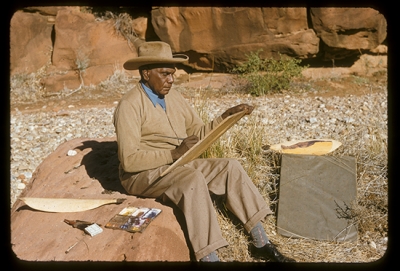Commentary
A cynic once remarked that an editor needs two things: good grammar and a long memory. But we all know there’s a bit more to it than that. As we prepare to send the April issue to press – the four hundredth in the magazine’s second series – it occurs to me that an editor’s main function is to be a recogniser of expertise ...
... (read more)I have always believed that, at a personal level, anything is possible, that if I desire to be a particular someone or do a particular something, I can. All my desires have been realistic: no hankerings for time travel or reinvention as a theoretical physicist, although both have enormous appeal. My desires have been possibilities ...
... (read more)Moments began as medieval measures, the time it took for a sundial’s blade of shadow to shift – ninety seconds or so, depending on the season. A slice of sunlight. A moment now carries cultural as well as temporal weight. A slice of spotlight. Increasingly, we speak of our present as a moment, as if its minutes are sprung ...
... (read more)Politicians in ancient Greece were well acquainted with the alluring intersection between sport and politics. Alcibiades, an ambitious aristocrat, entered seven chariots in the 416 BCE Olympics, aware of the potential political benefits. He came first, second, and fourth, later citing this ‘splendid performance’ to the Athenian ...
... (read more)Australian Book Review – like millions of Australians and thousands of organisations – is a strong supporter of same-sex marriage. We welcome the endorsement of marriage equality by the overwhelming majority of Australians in the postal survey.
... (read more)Following a concerted media and legal campaign, the Namatjira Legacy Trust has succeeded in securing the ownership of the copyright of Albert Namatjira following a recent resolution of claims made by the Trust against the long-time copyright owner Legend Press ...
... (read more)No amount of modelling or scientific assessment can foresee the full extent of the damage that will eventuate if the Adani Group’s Carmichael Coal Mine goes ahead. It would be the largest coal mine ever built in Australia and amongst the biggest in the world, extended over a thirty-kilometre-long area and comprising six open cut ...
... (read more)For decades, centuries, millennia, homosexuals (here as elsewhere) have been insulted, blackmailed, beaten, incarcerated, and murdered. Even now homosexuality remains one of the principal causes of suicide and despair in our society, especially among young males.
... (read more)Springtime allows Parisians to indulge their predilection for life en terrasse. Trees and gardens are blooming, neighbourhood markets and squares are coming alive, and the newly pedestrianised right bank of the Seine is busy with walkers and cyclists.
A rollerblading poet stopped to cadge some tobacco from a friend of mine as we were sitting outside a bar on ...
You see them driving from Kings Canyon to Alice Springs, the majestic ghost white river gums depicted so faithfully in the paintings of Albert Namatjira. You would think you were looking at a Namatjira painting. And then there is the vista of the craggy hills of the West McDonnell Ranges in their mysterious blue hue – a signature feature of Namatjira’s art.
... (read more)

